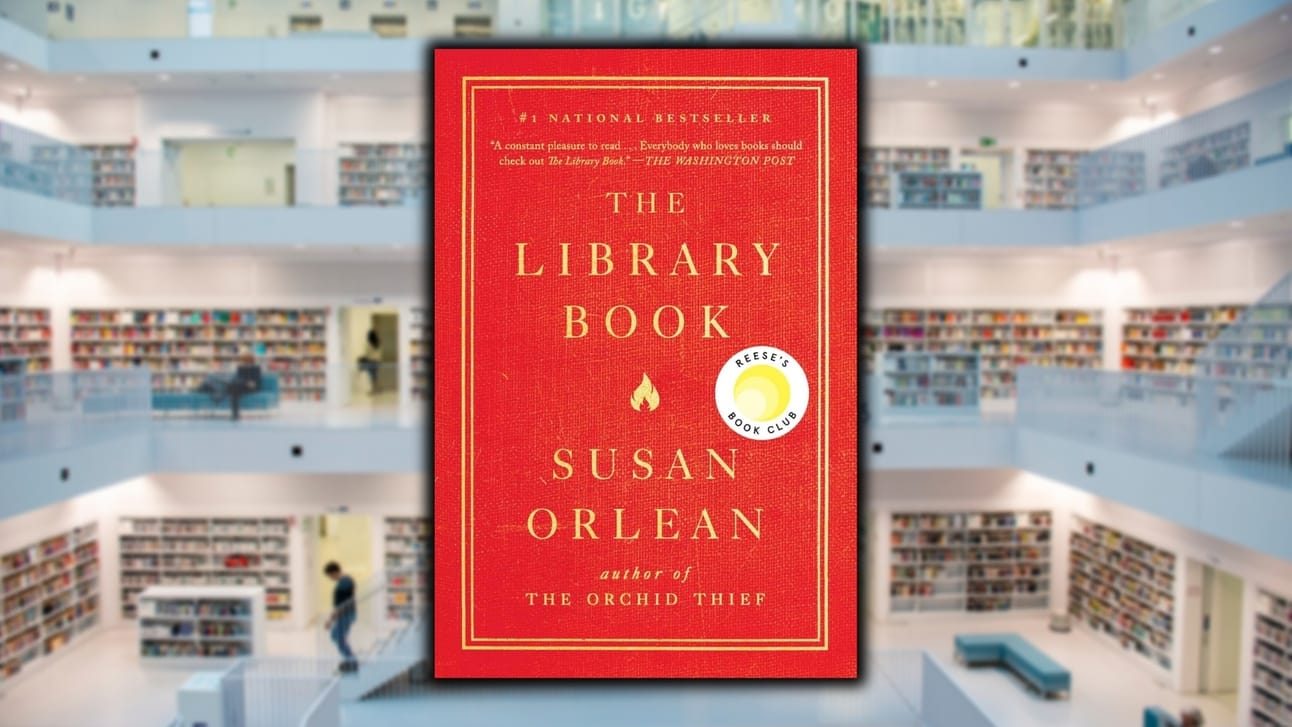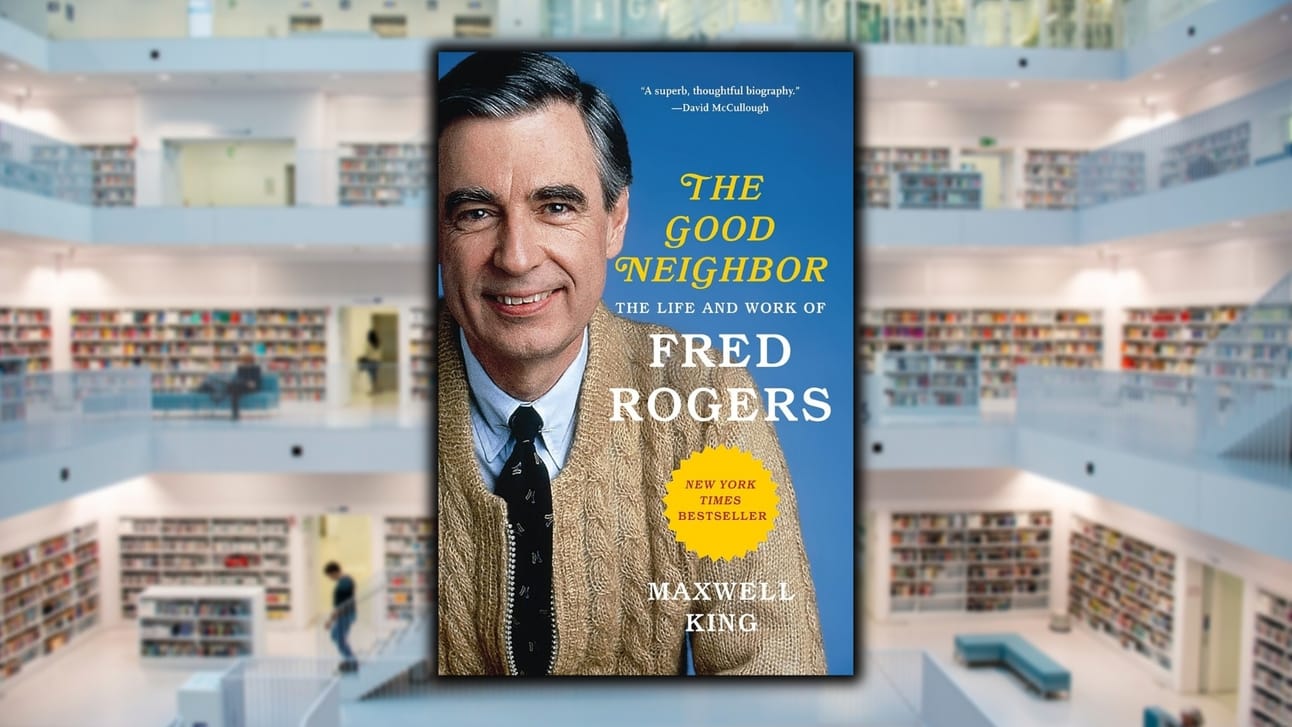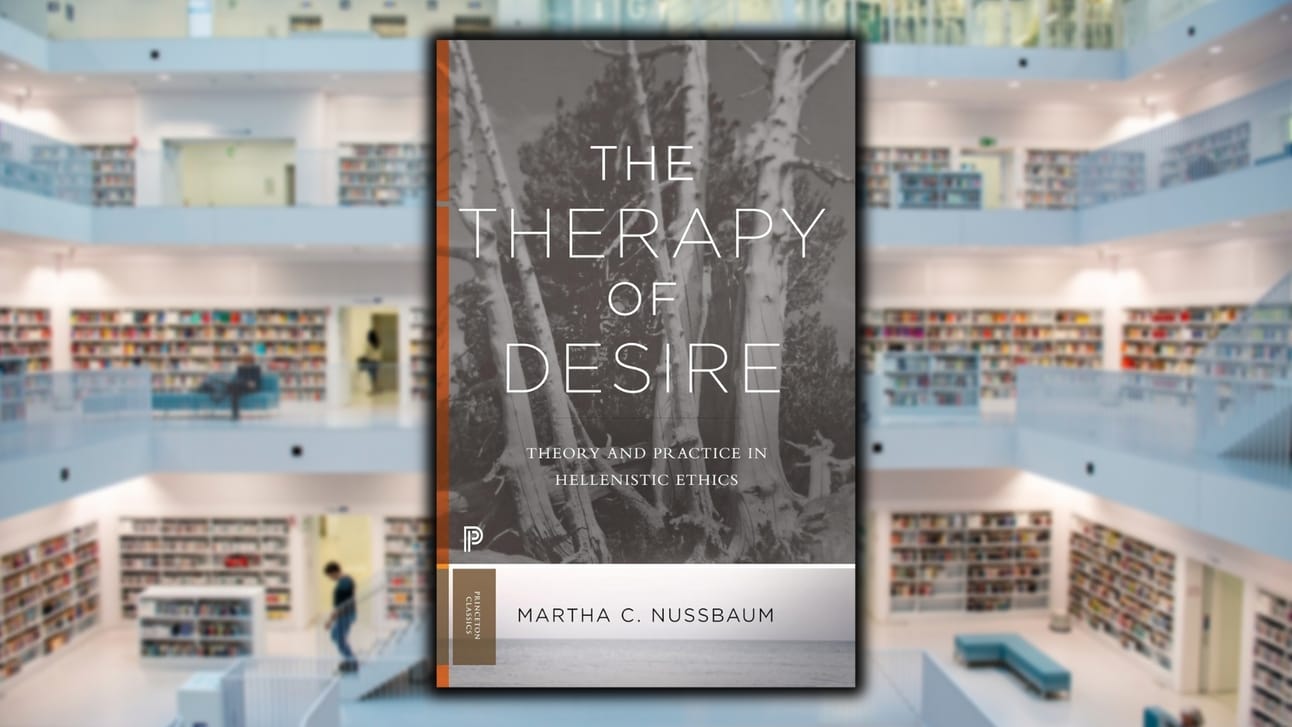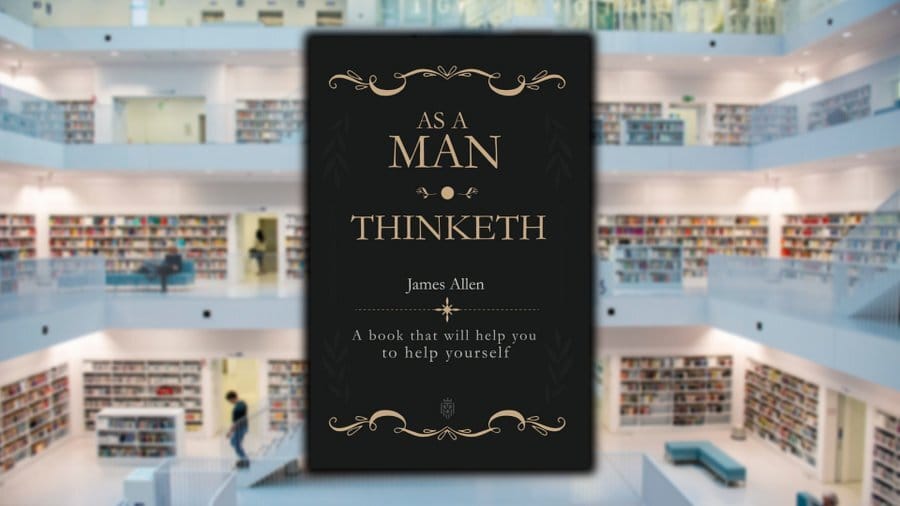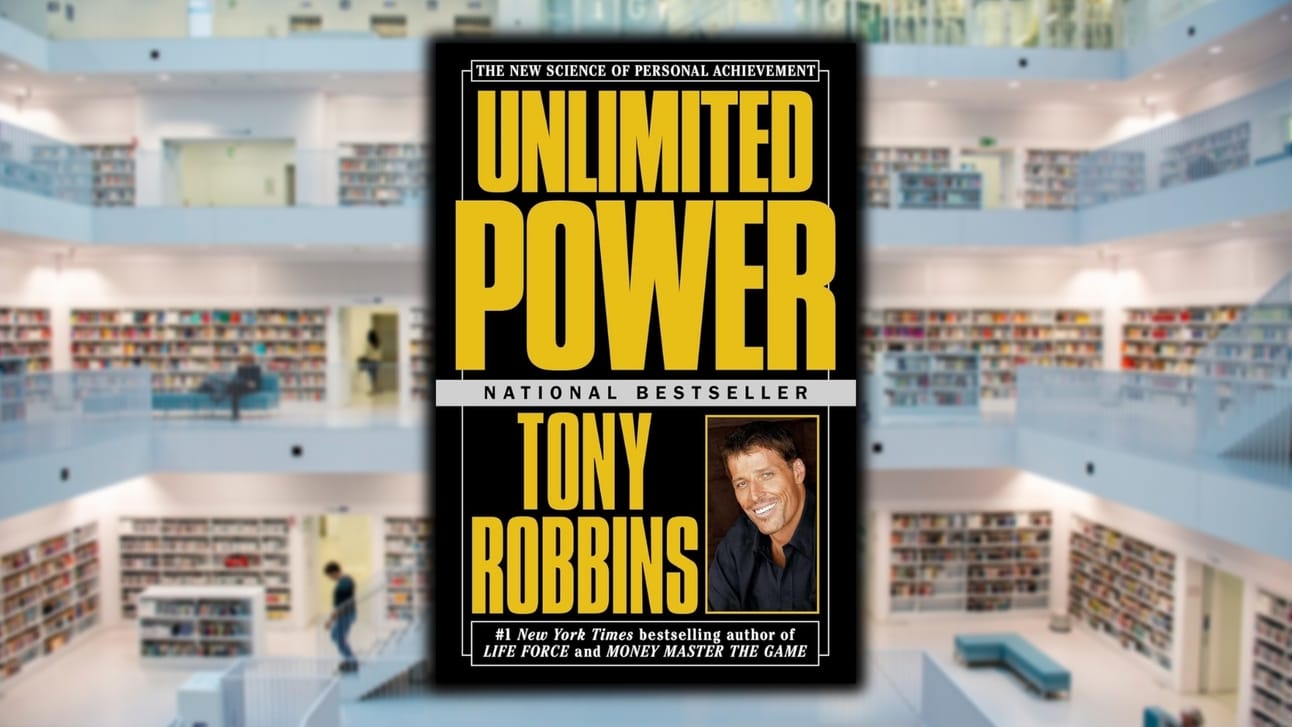Some books change you over time, some you implement right away, and some you don’t care for at all…but then there are those “other” books.
Those books where you feel yourself being changed by them - forever - even before you finish reading them. I’ve got ten of those books to recommend to you right now.
There’s one novel, one biography, one memoir, one science book, and a few other nonfiction titles, but each one of them made a massively transformational difference in my life, and I hope they do the same for you!
And now, before our coffees get cold…let’s read!
Tonight, Inside The Reading Life, We’ve Got:
We’ve got lots to learn today, so let’s hit the books!
“All the things that are wrong in the world in the world seem conquered by a library's simple unspoken promise: 'Here I am, please tell me your story; here is my story, please listen.'"
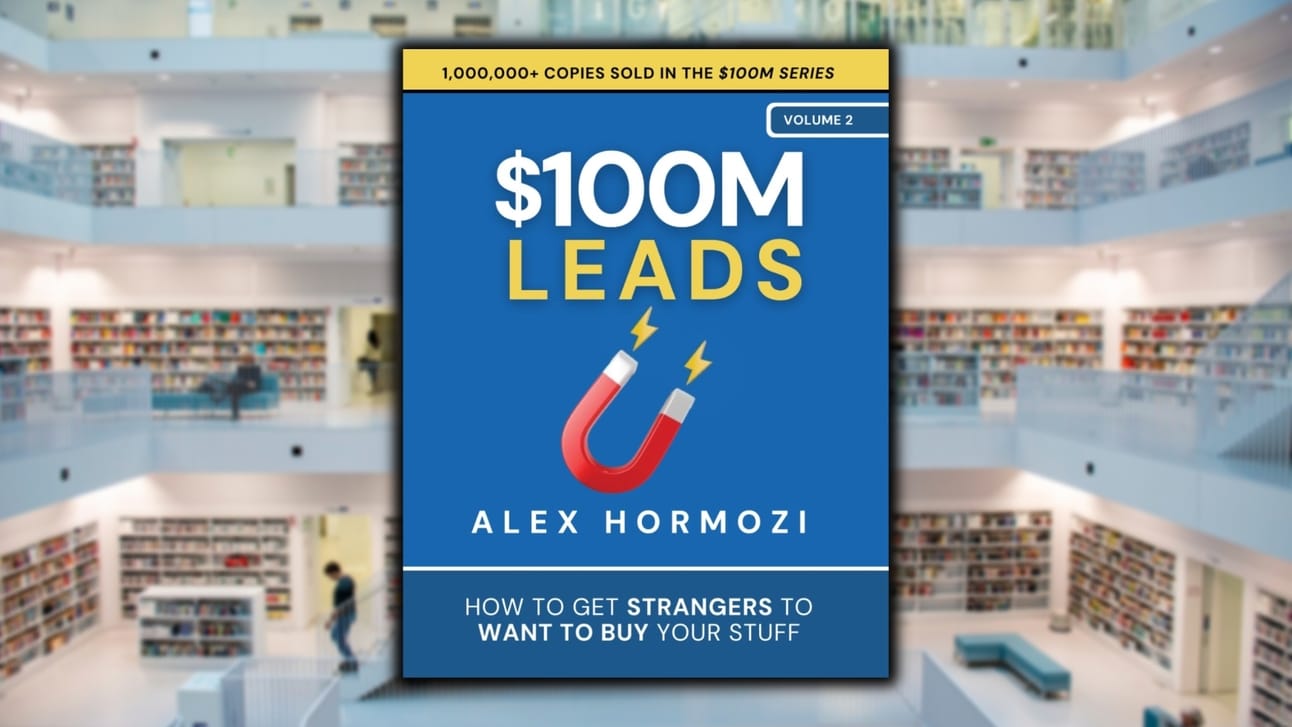

“Let’s imagine you have a product that takes a week to deliver. The customer can get one win at the end of that week or win every day with daily progress updates. Same amount of progress, seven times the wins.
On top of that, if someone said seven things would happen, and all seven do, I trust them even more. Referring a friend is now lower risk, since seven promises were made and all seven were kept.”
Inside my private business mastermind, Creator Launch Academy, we’re tackling one nonfiction book per week and implementing its lessons inside our businesses.
This week’s book is $100M Leads, by Alex Hormozi, a book I’ve read twice, and from which I’ve taken more than 10 pages of profitable notes. Click here to claim your free trial, and join our business book club for educational content creators!


After achieving my (somewhat meaningless) goal of reading 1,000 books before I turned 30, I set a new (also meaningless but cool) goal of reading 10,000 books. As of today, I’ve read 1,390 books, including 38 books so far this year, and if you’re interested, here’s my full Reading List.
“Before we devised artificial lights and atmospheric pollution and modern forms of nocturnal entertainment, we watched the stars. There were practical calendar reasons, of course, but there was more to it than that.
Even today the most jaded city dweller can be unexpectedly moved upon encountering a clear night sky studded with thousands of twinkling stars. When it happens to me after all these years, it still takes my breath away.”
Several of Carl Sagan’s books completely changed me as a person, and this is definitely one of them!
Pale Blue Dot is one of my absolute favorite books of all time, and that famous passage in the beginning (see my book notes below) is one of the most stirring descriptions of our Earth that I've ever heard. I had literally been standing on this planet for my whole life before reading this book, but afterwards, I came to see it in a radically new way.
The book is about space exploration, of course, but the implicit (and explicit) warning he gives throughout is that if we don't take better care of the planet we have now, we might have to go looking for another one.
That's easier said than done, so we'd better get our act together!
“The self-image sets the boundaries of individual accomplishment. It defines what you can and cannot do. Expand the self-image and you expand the ‘area of the possible.’ The development of an adequate, realistic self-image will seem to imbue the individual with new capabilities, new talents, and literally turn failure into success.”
A big claim that’s made in this book is that it’s almost literally impossible to act differently than our self-image of ourselves. Or rather, it’s possible, but we experience extreme cognitive dissonance – mental discomfort – when we do.
This has proven itself over and over again in my own life, and it resonates with some of the best advice I’ve ever received from Tony Robbins (and which he lays out in the ninth book on this list), which is to raise your standards.
We get what we tolerate in life, and if your standards are low to the ground, your life will never take off.
Similarly, if our self-image is that of an unmotivated, lazy underachiever, that’s exactly the kind of life we’re going to end up living. Now, if you don’t want that kind of life for yourself, this book can help.
It's a multimillion-copy bestseller that explores the concept of “emotional surgery,” or uncovering more of what we unconsciously believe about ourselves and to reprogram our own minds for success.
I never like to oversell these claims, because proponents of books like these tend to promise the world – the whole world and everything in four easy steps, or whatever. This isn’t that.
Just like with anything, you get out what you put in, and the work you do on yourself is the work of a lifetime. There’s so much gold here in this book, and any number of my notes on this book have the power to change a person’s life, but it has to be applied, and it has to be lived.
“I went to the woods because I wished to live deliberately, to front only the essential facts of life, and see if I could not learn what it had to teach, and not, when I came to die, discover that I had not lived.”
For some reason, I still remember that this was the 133rd book that I had ever read since I started counting. No idea why I remember that. Maybe it’s because Walden was one of the first books to hit me so hard and fast that it shook me alive as I was reading it and forever after.
Published in 1854, it's the nonfiction account of the time when American transcendentalist author Henry David Thoreau built his own cabin in the woods at Walden Pond and lived there by himself for two years.
It’s about the calming, reorienting power of solitude, about the transformative power of great books, and it’s about how to leave society once in a while so that you can be better prepared to return to it.
We often get caught up in our cares, concerns, and Twitter feeds, and all these demands on our attention tend to crowd out that inner voice we all need to listen to once in a while if we are ever to understand our own lives or what we want them to be about.
I doubt there are too many people in North America today who would be able to live by themselves in the woods for two years, but I’m sure that most of them would be much better off for doing it.
There are some truly profound and memorable observations scattered throughout these pages, and like I said, this book just completely took me over when I first read it in 2015. You don’t have to move to the woods like Thoreau did in order to become a real person and reconnect with your authentic voice, but it sure as hell helps.
“For Fred Rogers, it was always this way when he was with children, in person or on his hugely influential program. Every weekday, this soft-spoken man talked directly into the camera to address his television ‘neighbors’ in the audience as he changed from his street clothes into his iconic cardigan and sneakers.
Children responded so powerfully, so completely, to Rogers that everything else in their world seemed to fall away as he sang, ‘It’s a beautiful day in the neighborhood.’ Then his preschool-age fans knew that he was fully engaged as Mister Rogers, their adult friend who valued his viewers ‘just the way you are.’”
Children can always spot a fraud; they know when someone’s not being authentic or when they’re different from who they claim to be – which is evidence that Mister Rogers was the real deal. He was one of the most inspiring early childhood educators ever, and he saw the best in kids, which made it possible for them to bring out the best in themselves.
I absolutely loved every page of this biography of Mister Rogers and it’s now one of my favorite books that I’ve ever read (out of more than 1,000 books), but it also made me a better educator myself.
That’s what I am – an educator – and while my audience is a little bit older, I want to be one of the “good guys” just like Mister Rogers was, and I want my little corner of the internet to be as wonderful as his Neighborhood.
There are astonishing stories on nearly every page of this book, such as when the TV station held an event where children could come and meet Mister Rogers – thousands of kids showed up, lining up for miles and blocking the street like it was a college football game or something. But no matter how long the line was, he would get down on one knee, look each kid in the eye and make sure they knew that they mattered.
When you read the comments on some of the recent Mister Rogers YouTube tribute videos it’s all there. You have thousands and thousands of positive comments – never negative ones – with people saying things like, “My childhood was a fucking nightmare; Mister Rogers was the only adult who ever told me I was worth anything,” and stuff like that. It’s honestly amazing, and more than a little bit sad.
As you can probably tell, I highly, highly, HIGHLY recommend this book to pretty much everyone, and I’ve been thinking about it almost every single day since I read it.
His story is surprising, sad, exciting, inspiring – everything you wouldn’t expect from that nice man in the cardigan that used to show up every morning and tell you that he loved you just the way you are.
"Given the omnipresence of aggression and injustice, if we look around us every day with the attitudes typical of the angry person - determined, that is, to consider injustice and aggression bad things, worth getting upset about, then we will never cease to be angry, for everything we see will upset us."
In The Therapy of Desire, Martha Nussbaum, one of the most brilliant thinkers I’ve ever read, examines the medical model of philosophy, based on the work of famous Epicureans, Skeptics, and Stoics, all of whom prized the kind of philosophy concerned with real beneficial effects out there in the world, the kind which improved the lives of real people in real-time, instead of the more academic philosophy practiced today.
No stuffy, ivory-tower philosophy in this book.
It’s about examining what we really want in life, how we can adjust our desires to better fit what we say that we want in life, and about developing the intelligence and insight to make sure we want the right things, in the right amounts, at the right time.
Nussbaum also speaks about death quite often in the book, and The Therapy of Desire actually helped change my opinion in this area.
I was reading Antifragile by Nassim Taleb and I thought he was crazy for not wanting to live forever. And while I still absolutely, positively love being alive (I can’t repeat this enough: I do not waste a single minute of my one and only life and neither should you), I can accept Nussbaum’s - and Taleb’s - viewpoint that death is a “making way for others” that sets limits to our existence, within which all our highest values are given expression.
If no one ever died, facing death would not be courageous, our personal relationships would lose some of their poignancy, and our projects would seem hollow. I’m still struggling with this question myself, and I’m certainly nowhere near done living.
This book also put into words something that I’ve often felt previously, namely that the value of each individual human life is infinite.
The implication, of course, is that there is nothing that any of us have to “do” in order to become worthy of unconditional positive regard (in Rogerian terms) and nothing that we have to “become” in order to be persons of absolute value in the universe.
"Mind is the master-power that molds and makes. And man is Mind, and evermore he takes the tool of thought, and, shaping what he wills, brings forth a thousand joys, a thousand ills; he thinks in secret, and it comes to pass: environment is but his looking glass."
Published in 1903, As a Man Thinketh is one of the most popular self-help books of all time, and it's one that I try to re-read every single year. The benefits that it’s added to my calmness, peace, positivity, self-assurance, and boldness are all worth it!
In the book, James Allen poetically likens our minds to a garden, where the thoughts that grow are exactly like the ones that are planted. But it's so much more than just "positive thinking" or "wish-fulfillment." Simply put, our life is what our thoughts make it, and when we think uplifting thoughts, we lift ourselves up at the same time.
Allen was writing before Neville Goddard, but As a Man Thinketh is also about how we’re constantly “out-picturing” the images that are most dominant in our minds, which shapes our external circumstances over time.
In much the same way that we tend to see what we’re looking for, so long as we entertain thoughts of integrity, justice, hope, positivity, wealth, and abundance in all its forms, that’s what we’re most likely to see “growing” in our lives.
As you can see from my book notes here, the writing is just beautiful too - stunning, even. And it’s like that from start to finish! The whole book is less than 50 pages, so it’s another one that you can easily read in a single day but keep returning to for a lifetime.
“He looked around, as if he was seeing the world for the first time. Beautiful was the world, colorful was the world, strange and mysterious was the world! Here was blue, here was yellow, here was green, the sky and the river flowed, the forest and the mountains were rigid, all of it was beautiful, all of it was mysterious and magical, and in its midst was he, Siddhartha, the awakening one, on the path to himself.”
After you’ve read The Alchemist, the natural next step is to slip into Siddhartha, which is exactly what I did back in 2015. It’s quite a bit deeper and more subtly complex than Coelho’s book, but that’s not to take anything away from The Alchemist! Both books shaped the course of my life, and still do.
Again, the story here is simple. A wealthy Indian Brahmin ditches his life of wealth and ease and goes off in search of spiritual fulfillment and identity. Nothing about this search turns out to be easy or straightforward, and Siddhartha makes many mistakes.
It’s astonishingly difficult to become who you are, as it turns out, and he makes something of a mess of it occasionally - you may be able to relate!
But he eventually finds that the perfection he was seeking already exists - has always existed, and will always exist forever and ever. All he has to do - though, paradoxically, it’s the most difficult thing of all to do - is to become completely and totally and fully himself.
He has to walk his own path and allow others to walk theirs. He has to learn and experience and become transformed by a deep appreciation and reverence for life. And he has to travel the entire path to find that he’s arrived at the very beginning.
Now, his life can begin again. And, after reading Siddhartha for the first time, mine did too.
“The challenge for all of us is an inner one: to keep going when it seems like no one is paying attention or cares. And to believe that eventually the world will catch up.”
While the rest of the world thinks we're playing checkers, readers of this book will know that we're actually playing chess instead.
The greatest Grandmasters in chess plan many, many moves ahead, and the best players in the game of life tend to do the same thing. That's what The Long Game is all about.
In this book, Dorie Clark doesn't claim that the hard path is the only correct path, but she does explain that we have to be intentional about how we structure our choices and prepare a long-term plan for our careers and lives.
She also shows readers how to enjoy today, because you'll have greater confidence that you're on the right path, instead of scrambling from one imminent deadline to the next, never lifting your head above water for long enough to do any effective planning.
Creating the white space in our lives necessary in order to step back and take in the whole picture is one of the goals of this book, and she presents a ton of high-level concepts to help you make this kind of thinking more common in your daily life.
In a world where everyone’s mind is dominated by short-term thinking, and their strategies sabotaged by self-destructive impulses, The Long Game will give you an incredible competitive advantage. Absorb its lessons, implement your long-term strategy, and you’ll be the one who emerges at the finish line completely transformed.
“Success is simple. First, you decide what you want specifically; and second, you decide that you’re willing to pay the price to make it happen - and then pay that price.”
Raising my standards has been the key to a lot of my success, and I still remember first reading about this idea in Tony's book.
Raising your standards is about not accepting less from yourself than you are capable of achieving in the areas that are important to you. It means keeping the promises you make to yourself and never letting yourself down.
For me it shows up in my physical fitness, my earning and giving power, and my erudition, among other things. For you, it could be something different. But whatever you care about, demand more from yourself in that area.
A big part of that is to get down with the idea of how seriously powerful your mind actually is, and then putting it to full use! That’s another thing that Unlimited Power made perfectly clear to me. There’s this massive supercomputer just sitting on our shoulders, 24/7/365, and it can take us pretty much wherever we program it to go.
“Committing to what you want most is the only way to be free.”
Total transformations are never linear, and they are rarely obvious. It requires something completely different than what came before, a radical change in behavior and thinking, and if you're not consciously aiming for these types of 10X transformations, you'll never experience them.
10X Is Easier Than 2X is not a difficult book to read or understand, and once you see what Hardy's writing about, you can't unsee it. The goal of the book is to inspire entrepreneurial leaders to aim for "breakthrough" goals, not merely "incremental" goals (2X) - which will never lead to radical transformation.
One of the major themes of the book is that, in aiming for these kinds of 10X transformations, you'll have to let go of about 80 percent of what you're doing now.
What got you here won't get you there, and as you keep ascending higher and higher in developing your own “Unique Ability,” you'll have to keep zoning in on the 20% that will get you to that next level.
If all this sounds a little bit abstract, the author does get into specifics. These are just the broad strokes. But this kind of big-picture thinking is likely to start a spin-cycle inside your brain as you start to get a handle on all the possibilities this idea opens up for you to expand your four most important freedoms: Time Freedom, Financial Freedom, Relationship Freedom, and Purpose Freedom.
It's those four fundamental freedoms that you'll need to keep expanding if you want to keep making progress. The projects and purposes you devote yourself to, the people you choose to surround yourself with while you do, the money it'll take to make them real, and the time it'll take to bring it all together.
This all must seem like a lot more work, but it's actually less. It's easier than going 2X, and that's because we're talking about a total reimagining of business as usual, not something that's "a little bit better" than what came before.
Forward this to a friend you think would love this book!
If you were sent this newsletter, click here to subscribe.
To read past editions of The Reading Life, click here.
Click here to recommend The Reading Life on Twitter (X).
OK, that’s it for now…
I’ve got plenty more excellent book recommendations coming your way soon though!
There’s also my YouTube channel, where I publish book reviews, reading updates, and more each week.
And if you want to learn how I’ve built an audience of 160,000+ followers across social media, became a full-time creator, and how I’m rapidly growing my audience and my profits in 2025, join us inside Creator Launch Academy and that’s exactly what I’ll teach you — we’d love to have you in the community!
With that said, I hope you enjoyed this edition of The Reading Life, and enjoy the rest of your day!
Until next time…happy reading!
All the best,
Matt Karamazov
P.S. Whenever you're ready, here are three more ways I can help you:
Creators: Book a 1:1 call and I’ll help you hit $5K/month with a plan tailored to your business.
Join Creator Launch Academy, my mastermind for content creators building real revenue and real freedom.



